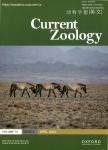Reducing the loss of genetic diversity associated with assisted colonization-like introductions of animals
Reducing the loss of genetic diversity associated with assisted colonization-like introductions of animals作者机构:Department of Biosciences University of Helsinki Helsinki Finland Department of Biology University of Turku Turku Finland
出 版 物:《Current Zoology》 (动物学报(英文版))
年 卷 期:2015年第61卷第5期
页 面:827-834页
核心收录:
学科分类:0710[理学-生物学] 07[理学] 080704[工学-流体机械及工程] 0905[农学-畜牧学] 080103[工学-流体力学] 08[工学] 0906[农学-兽医学] 0807[工学-动力工程及工程热物理] 071002[理学-动物学] 0801[工学-力学(可授工学、理学学位)]
基 金:KONE foundation
主 题:Introduced species Loss of genetic diversity Number of founders Conservation management Population growth rate Generation time
摘 要:Translocations, especially assisted colonizations, of animals are increasingly used as a conservation management tool. In many cases, however, limited funding and other logistic challenges limit the number of individuals available for transloeation. In conservation genetics, small populations are predicted to rapidly lose genetic diversity which can deteriorate population survival. Thus, how worried should we be about the loss of genetic diversity when introducing small, isolated populations? Historical species introductions provide a means to assess these issues. Here we review 13 studies of "assisted colonization-like" introductions of animals, where only a small known number of founders established an isolated population without secondary contact to the source population. We test which factors could be important in retaining genetic diversity in these cases. In many cases, loss in heterozygosity (-12.1%) was detected, and more seriously the loss in allelic richness (-27.8 %). Number of founders seemed to have an effect but it also indicated that high population growth rate could help to retain genetic diversity, i.e. future management actions could be effective even with a limited number of founders if population growth would be enhanced. On the contrary, translocated organisms with longer generation times did not seem to retain more genetic diversity. We advocate that, where possible, future studies on translocated animals should report the loss of genetic diversity (both heterozygosity and allelic richness), which is essential for meta-analyses like this one for deepening our understanding of the genetic consequences of assisted colonization, and justifying management decisions [Current Zoology 61 (5): 827-834, 2015].



